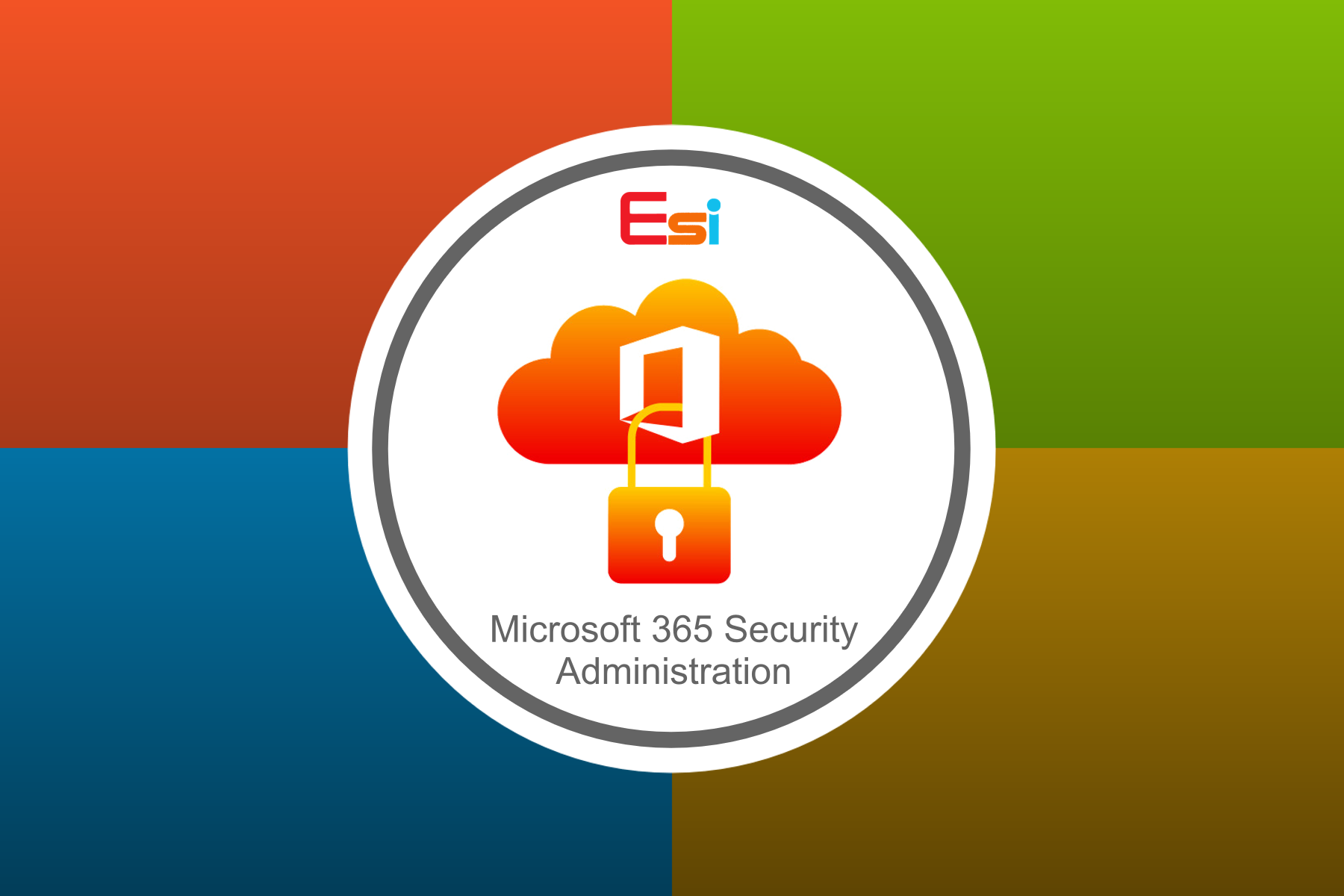Overview
- In an ever-evolving technological business landscape, it is critical for enterprises to be dependent on applications to create and share data for their
- However, it is important to introduce the right security protocols and measures in order to maintain that convenience.
- One of the commonly used tools in most business environments is the Microsoft software suite, Microsoft 365.
- The M 365 suite consists of tools that make running a business organized and almost entirely virtual. As a result, Security Administration professionals for the Microsoft 365 are in great demand and play a significant role within their organizations.
Benefits
- Microsoft 365 is a productivity cloud consisting of a number of applications designed to help a business run day-to-day activities. Previously called Microsoft Office,
- the software suite consists of the basic word processor, spreadsheet and presentation builder along with cloud storage solutions, a virtual notepad, a personal information manager, web page builder, and digital communication
- The Microsoft 365 Security Administration training helps businesses introduce an in-house administrator to ensure all applications are working properly and within the rules and guidelines of operations determined by the This means certified professionals are able to manage threat protection, information access, users, and maintenance of compliance to keep information safe in storage and during transmission.
- With the prevalence of cyber security issues, hiring a certified professional can be strongly beneficial creating a number of job opportunities within the
The Main Topic of the Course
- Module 1: User and Group Protection
- Module 2: Identity Synchronization
- Module 3: Access Management
- Module 4: Security in Microsoft 365
- Module 5: Advanced Threat Protection
- Module 6: Threat Management
- Module 7: Mobility
- Module 8: Information Protection
- Module 9: Rights Management and Encryption
- Module 10: Data Loss Prevention
- Module 11: Cloud Application Security
- Module 12: Compliance in Microsoft 365
- Module 13: Archiving and Retention
- Module 14: Content Search and Investigation
Course Requirements
in order to sit for this Microsoft 365 Security Administration course, candidates recommended to have:
- Basic conceptual understanding of Microsoft Azure
- Experience with Windows 10 devices
- Experience with Office 365
- Basic understanding of authorization and authentication
- Basic understanding of computer networks
- Working knowledge of managing mobile devices
Exam requirements
There are no specific prerequisites required to attend Exam
LAB Requirement
It is recommended to have LAB in this course as trial account on Microsoft 365 cloud
Course Outlines and Training Plan
Module 1: User and Group Protection
- identity and Access Management Concepts
- Zero Trust Security
- User Accounts in Microsoft 365
- Administrator Roles and Security Groups in Microsoft 365
- Password Management in Microsoft 365
- Azure AD Identity Protection
- Lab : Initialize your trial tenant
- Set up your Microsoft 365 tenant
- Lab : Configure Privileged Identity Management
- Discover and Manage Azure Resources
- Assign Directory Roles
- Activate and Deactivate PIM Roles
- Directory Roles (General)
- PIM Resource Workflows
- View audit history for Azure AD roles in PIM
Module 2: Identity Synchronization
- Introduction to Identity Synchronization
- Planning for Azure AD Connect
- Implementing Azure AD Connect
- Managing Synchronized Identities
- Introduction to Federated Identities
- Lab : Implement Identity Synchronization
- Set up your organization for identity synchronization
Module 3: Access Management
- Conditional access
- Manage device access
- Role Based Access Control (RBAC)
- Solutions for external access
- Lab : Use Conditional Access to enable MFA
- MFA Authentication Pilot (require MFA for specific apps)
- MFA Conditional Access (complete an MFA roll out
Module 4: Security in Microsoft 365
- Threat vectors and data breaches
- Security strategy and principles
- Security solutions in Microsoft 365
- Microsoft Secure Score
- Lab : Use Microsoft Secure Score
- Improve your secure score in the Microsoft 365 Security Center
Module 5: Advanced Threat Protection
- Exchange Online Protection
- Office 365 Advanced Threat Protection
- Manage Safe Attachments
- Manage Safe Links
- Azure Advanced Threat Protection
- Microsoft Defender Advanced Threat Protection
- Lab : Manage Microsoft 365 Security Services
- Implement ATP Policies
Module 6: Threat Management
- Use the Security dashboard
- Microsoft 365 threat investigation and response
- Azure Sentinel for Microsoft 365
- Configuring Advanced Threat Analytics
- Lab : Using Attack Simulator
- Conduct a simulated Spear phishing attack
- Conduct simulated password attacks
Module 7: Mobility
- Plan for Mobile Application Management
- Plan for Mobile Device Management
- Deploy Mobile Device Management
- Enroll Devices to Mobile Device Management
- Lab : Configure Azure AD for Intune
- Enable Device Management
- Configure Azure AD for Intune
- Create Intune Policies
Module 8: Information Protection
- Information Protection Concepts
- Azure Information Protection
- Advanced Information Protection
- Windows Information Protection
- Lab : Implement Azure Information Protection and Windows Information Protection
- Implement Azure Information Protection
- Implement Windows Information Protection
Module 9: Rights Management and Encryption
- Information Rights Management
- Secure Multipurpose Internet Mail Extension
- Office 365 Message Encryption
- Lab : Configure Office 365 Message Encryption
- Configure Office 365 Message Encryption
- Validate Information Rights Management
Module 10: Data Loss Prevention
- Data Loss Prevention Explained
- Data Loss Prevention Policies
- Custom DLP Policies
- Creating a DLP Policy to Protect Documents
- Policy Tips
- Lab : Implement Data Loss Prevention policies
- Manage DLP Policies
- Test MRM and DLP Policies
Module 11: Cloud Application Security
- Cloud App Security Explained
- Using Cloud Application Security Information
Module 12: Compliance in Microsoft 365
- Plan for compliance requirements
- Build ethical walls in Exchange Online
- Manage Retention in Email
- Troubleshoot Data Governance
Module 13: Archiving and Retention
- Archiving in Microsoft 365
- Retention in Microsoft 365
- Retention policies in the Microsoft 365 Compliance Center
- Archiving and Retention in Exchange
- In-place Records Management in SharePoint
- Lab : Compliance and Retention
- Initialize Compliance
- Configure retention tags and policies
Module 14: Content Search and Investigation
- Content Search
- Audit Log Investigations
- Advanced eDiscovery
- Lab : Manage Search and Investigation
- Investigate your Microsoft 365 Data
- Conduct a Data Subject Request






